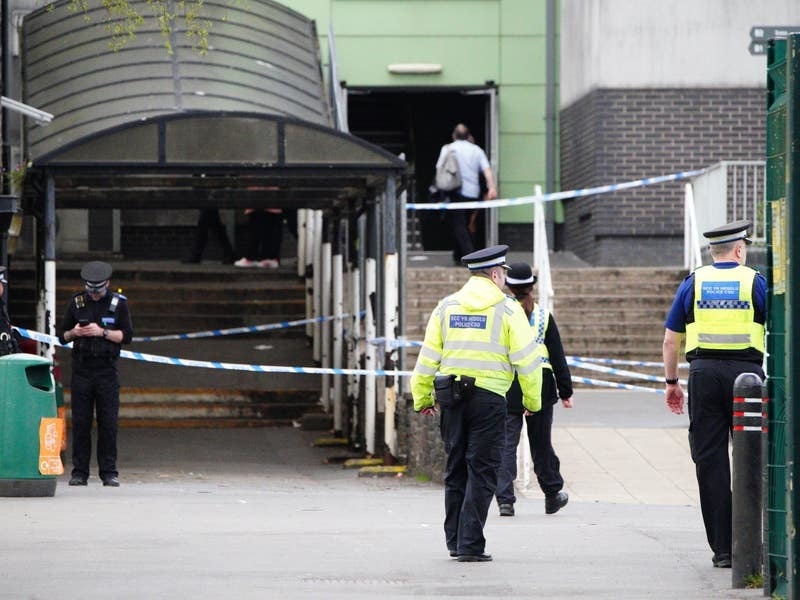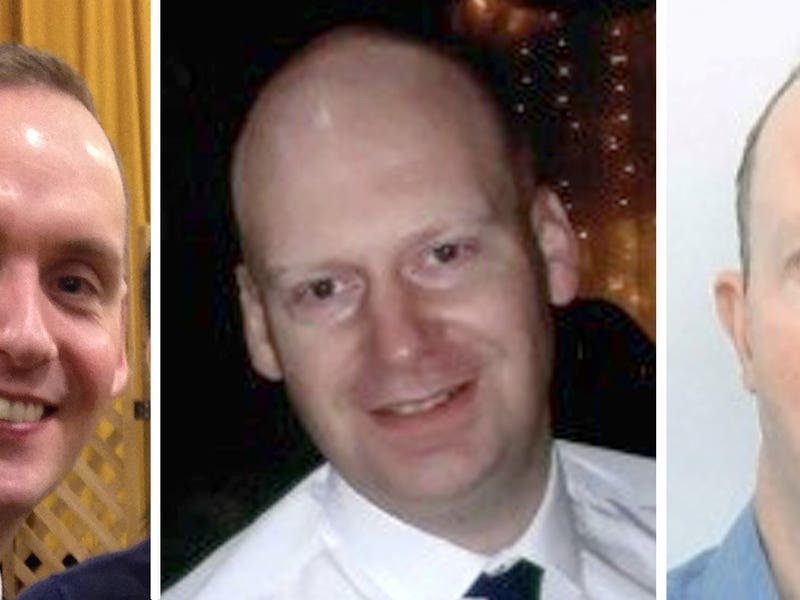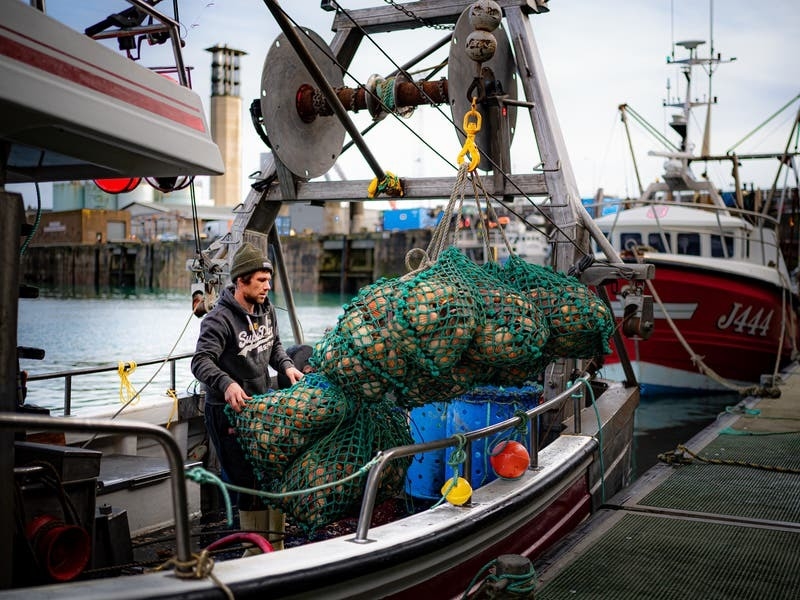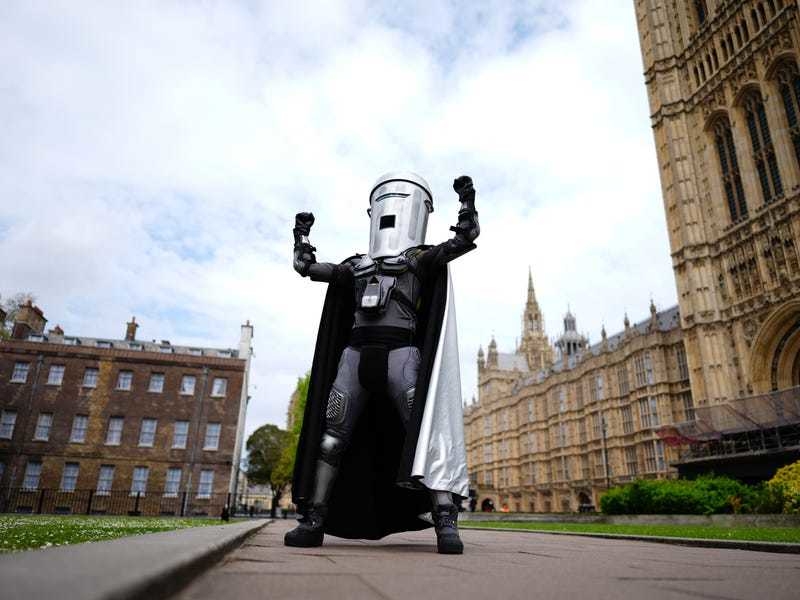Boris Johnson has warned of the “risk” of nuclear disaster in Europe following the Russian shelling of a Ukrainian power plant, as he said the world is “turning its back” on Vladimir Putin.
In an interview with foreign newspapers, the Prime Minister described the moment he was woken in the middle of the night to the news of the attack on the Zaporizhzhia nuclear site, the likes of which he said were “clearly a matter of our common European health and safety”.
He said it must be made clear to the Kremlin that “a civilian nuclear disaster in Ukraine, another Chernobyl, is a disaster for Russia as well as for everybody”.
In a call with French President Emmanuel Macron on Friday evening, the Prime Minister described the crisis in Ukraine as “the worst war on our continent for a long time”.
And in a video message on Twitter, he reiterated that “however long it takes, however arduous, Putin must fail”.
Я хочу звернутися безпосередньо до українців тут, у Великій Британії, й до тих, хто знаходиться в Україні та сусідніх країнах. pic.twitter.com/Wk68dfmM8K
— Boris Johnson (@BorisJohnson) March 4, 2022
Mr Johnson argued that “the world is turning its back on Putin and his regime”, with “nation after nation” taking a stand.
“The vice is tightening its grip, and it will continue to tighten,” he said.
Earlier on Friday, the Government announced it was bringing forward amendments to the Economic Crime (Transparency and Enforcement) Bill, to ensure it can “respond even more swiftly and effectively to the current crisis in the way we sanction individuals”.
The Prime Minister said the UK was “bolstering” its package of sanctions against the Kremlin with “new powers in our arsenal to go further and faster”.
He said the changes would “ramp up the pressure on those criminal elites trying to launder money on UK soil”, ensuring they have “nowhere to hide”.
NEWS: Emergency legislation will be introduced in Parliament next week to allow the government to move faster and harder in sanctioning oligarchs and businesses associated with the Putin regime.
— Foreign, Commonwealth & Development Office (@FCDOGovUK) March 4, 2022
But Ukrainian president Volodymyr Zelensky made clear in a late night address on Friday that he felt the West needed to do more to defend Ukraine, criticising Nato for its refusal to impose a no-fly zone.
“All the people who die from this day forward will also die because of you, because of your weakness, because of your lack of unity,” he said.
“The alliance has given the green light to the bombing of Ukrainian cities and villages by refusing to create a no-fly zone.”
Mr Johnson, US President Joe Biden and other Nato leaders have all been adamant that they cannot actively get involved in the fighting.
Mr Johnson recounted his overnight call with Mr Zelensky about the shelling of the Zaporizhzhia power station, saying their pair agreed that an attack on a nuclear power plant is “clearly a matter of our common European health and safety”.
“Our security is equally involved, equally jeopardised by such an attack,” he said.
“We remember what happened with Chernobyl, the radioactive clouds spread over the whole continent, and indeed, also to North America, as far as I can remember.
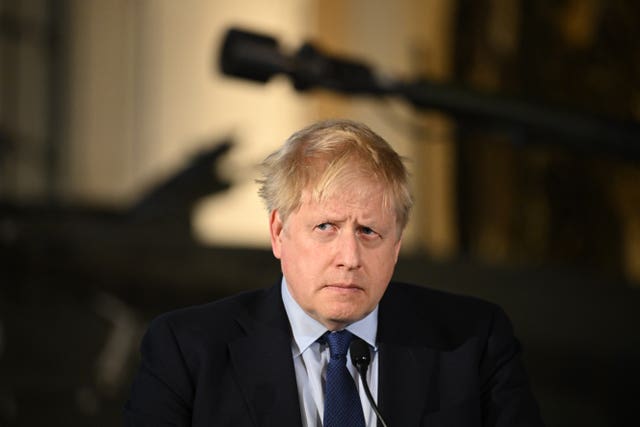
On how nuclear plants can be protected, he said: “We have to make clear to the Kremlin that a civilian nuclear disaster in Ukraine, another Chernobyl, is a disaster for Russia as well as for everybody.”
“Therefore, I think that some system of protecting those plants, some system of ensuring that radioactivity levels are monitored by international authorities, such as the UN (United Nations) and the IAEA (International Atomic Energy Agency) on the ground, is going to be extremely important.”
The Prime Minister also suggested the crisis in Ukraine may have improved relations between the UK and EU.
Asked if the situation had “mended a lot of wounds and a lot of broken relations between the UK and the European Union”, he said: “Sometimes, if a family goes through some big trauma, then the real strength of the affection between the members of the family and the way they work together can sometimes suddenly be revealed again.

Defence Secretary Ben Wallace said earlier that Mr Putin was “playing with fire” by attacking the Zaporizhzhia nuclear site – a move Western officials deemed unprecedented.
The attack was being discussed on Friday at an emergency meeting of the UN Security Council, which Mr Johnson had called for in the early hours of the morning.
The UK’s permanent representative to the UN, Dame Barbara Woodward, said Russia “must keep fighting away from and protect the safety and security of nuclear sites”.
It came as the isolation of Russia and its people from the rest of the world continued, with the BBC announcing it would “temporarily suspend” the work of all its journalists and support staff in the country after authorities passed legislation which director-general Tim Davie said appeared to “criminalise the process of independent journalism”.
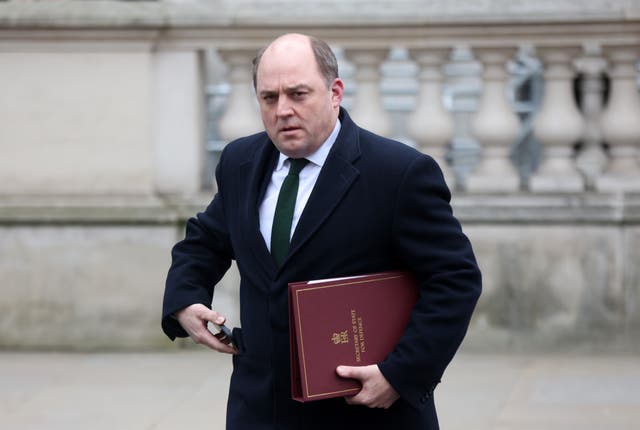
Russia has also blocked access to Facebook, according to the country’s state communications watchdog Roskomnadzor.
Sir Nick Clegg, vice president of global affairs at Facebook’s parent company Meta, said of the decision: “Soon millions of ordinary Russians will find themselves cut off from reliable information, deprived of their everyday ways of connecting with family and friends and silenced from speaking out.”
Meanwhile, US Secretary of State Antony Blinken said he was confident Ukraine could ultimately win its war against Russia.
In an interview with the BBC, Mr Blinken praised the “extraordinary resilience” of the Ukrainian people, telling the broadcaster: “If it’s the intention of Moscow to try somehow to topple the government and install its own puppet regime, 45 million Ukrainians are going to reject that one way or the other.
“I can’t tell you how long this will go on. I can’t tell you how long it will take. But the idea that Russia can subjugate to its will 45 million people who are ardently fighting for their future and their freedom, that does not involve Russia having its thumb on Ukraine, that tells you a lot.”


